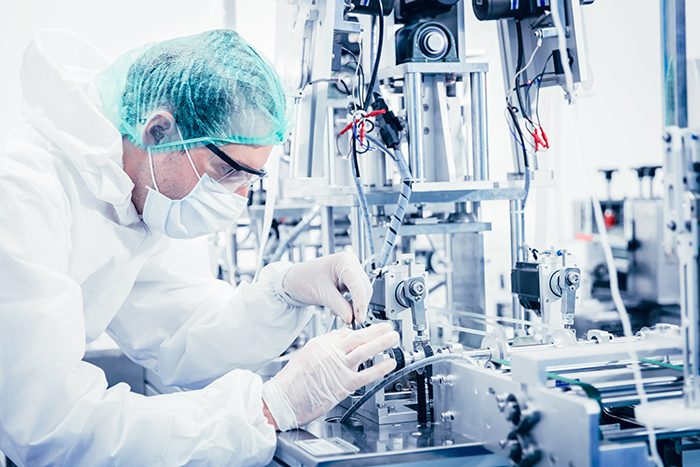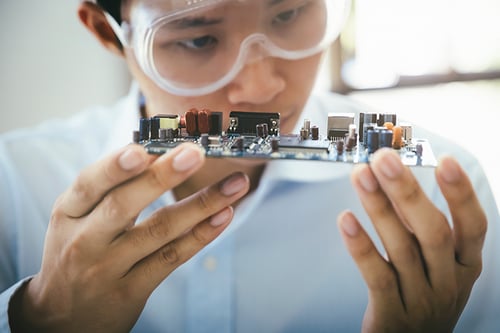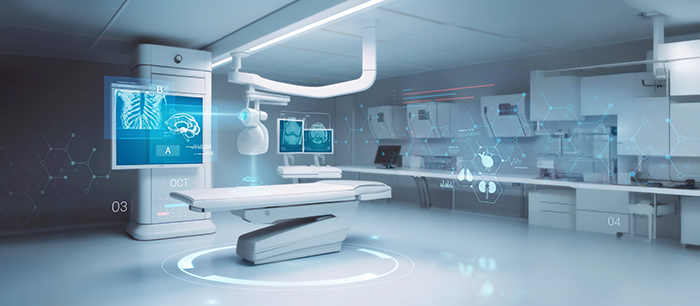
In the last few decades, the use of engineering technologies has significantly transformed the healthcare industry. Engineers and medical professionals alike have experienced the way in which innovative and impactful engineering technologies can increase efficiency and accuracy in surgery and intervention settings — from diagnostics tools to clinical testing systems to robotics.
Now more than ever, there is an urgent need for strategic, novel technologies that can be used to further improve patient care, experience and outcomes.
The solution? Medical device engineering.
What Does a Medical Device Engineer Do?
Medical device engineers are tasked with developing new medical systems, frameworks and equipment to be used in surgery and intervention settings and beyond.
These engineering professionals work to manufacture innovative solutions to the most pressing challenges facing surgeons and interventionalists today by designing medical devices that innovate treatment approaches to improve outcomes. These medical devices are on the frontline of clinical patient care at hospitals or other medical facilities.
A medical device engineer, depending on the specific area of focus, may be responsible for conducting biomedical research, consulting with medical professionals, testing and refining technologies not yet in industry use or designing devices with the aid of data analytics and computer science.
4 Ways Medical Device Engineering Improves Patient Care and Outcomes
The healthcare field needs skilled, hands-on engineering professionals who can develop and refine innovative medical devices. Here are just a few ways that medical device engineering improves patient care and outcomes.
1. Enhancing patient safety
The safety and well-being of a patient is paramount in any healthcare setting. Medical device engineering allows healthcare professionals to better conduct risk assessment using technologies like diagnostic processing, computer-assisted imaging and data retrieval.
By better understanding the potential risks and outcomes associated with any particular procedure, healthcare workers may in turn provide better patient care with more positive results — all thanks to the critical use of medical devices designed by engineers.
2. Improving diagnosis and treatment
Due to the work of medical device engineers, there have been significant advancements in technologies that aid in critical diagnosis, treatment and early detection over the last few years. Devices like medical imaging processing, modeling and simulations and robotic biopsy technology have allowed healthcare professionals to not only better diagnose patients, but to effectively treat them with data-driven solutions.
Hear Vanderbilt School of Engineering professors, Dr. Robert Webster III, PhD and Dr. Duke Herrell III, MD, discuss in Vanderbilt Entrepreneurs:
Panel IV how medical device engineering is improving diagnostic technology.
3. Bettering patient experience
Medical device engineering is not siloed to diagnostics and treatment. Rather, advancements with regard to medical devices can actually minimize invasiveness and discomfort when it comes to treatment, provide more patient-centered frameworks and increase accessibility for diverse bodily abilities.
With regards to long-term patient experience, advanced medical devices like prosthetics, therapeutics and robotics can greatly improve the quality of life for individuals for much longer periods of time.
4. Enabling remote monitoring and accessibility
In our increasingly remote world, healthcare professionals are similarly seeking ways to provide accessible care in novel and inclusive ways. Remote patient monitoring, systems automation and telemedicine or other virtual healthcare consultations are examples of medical device engineering that also improve accessibility and continuity of care for patients. These systems enable healthcare professionals to observe and monitor patient progress without necessarily requiring in-person care.
Enter One of the Most Transformative Fields Today with a Master of Engineering in Surgery and Intervention
Vanderbilt University School of Engineering, in partnership with the Vanderbilt Institute for Surgery and Engineering (VISE), has launched a master of engineering in surgery and intervention — a rigorous engineering graduate program that will prepare the next generation of engineers to address challenges and envision solutions at the interface of engineering and medicine.
Note: Learn more about why you should specifically choose Vanderbilt’s master of engineering in surgery and intervention here.
By choosing the master of engineering in surgery and intervention at Vanderbilt School of Engineering, obtain a graduate engineering degree that will strategically place you at the forefront of surgical technological progress in a critically important and booming field.
Are you ready to take the next step in pursuing a career as a medical device engineer? We invite you to request more information or start your online application today.





